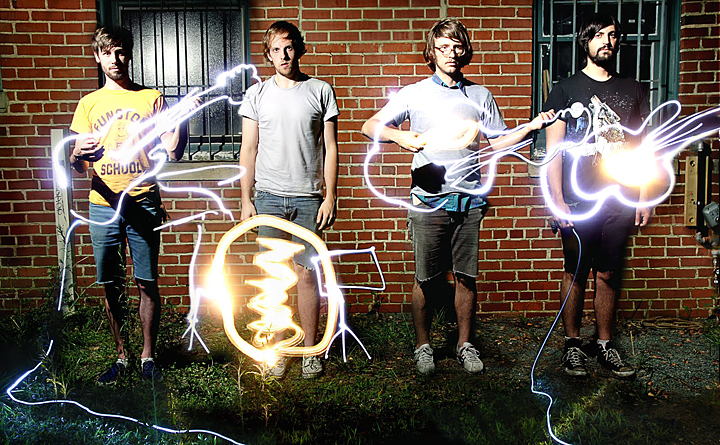Tonight, Gardner experiments with three bands—Maps & Atlases and openers Little Teeth and Capillary Action. All three categorize their music in the “experimental” genre, but each brings its own twist.
Little Teeth makes melodramatic experimental music. In “Heavy Evidence,” they have whistling and a lot of voices singing in the background at once. It sounds a little like cats singing in the backyard. The guitar intro in “Japanese Candy,” a track off of their debut album “Child Bearing Men,” is melancholic but fast, as are the beginning of the vocals. But at one point, the vocals are reminiscent of cats again. They use a wide variety of instruments, including the tin drum menagerie, glockenspiel, gartine, vox, gonzo drum set, auto-harp, banjo, mandolin, dulcimer, gramolin and synth.

Capillary Action are avant-rock experimental. With their disjointed melodies and eccentric rhythms, they stand directly out of the crowd. Unlike some experimental bands, their songs are not repetitive at all, nor are they similar to each other. “Bloody Nose” is a song that has extreme peaks that go suddenly up and down.“Placebo and Panacea” has some chord progressions that almost sound jazzy.
As a math rock band, Maps & Atlases has rhythmically complex music. “Ted Zancha,” one of their songs, starts with guitar and drums that echo each other and then as the vocals begin, they mirror the instruments’ rhythm. Another song, “Artichokes,” has a sound that seems to draw from non-American influences, possibly Indian. “Pigeon,” a song with a dance beat, has an exciting guitar intro that foreshadows a drumbeat that makes listeners want to move.
“Listen to the sounds they make/ the sounds they make/ the sounds they make/ So far from the middle/ so far from the middle” sings Maps & Atlases in “Listen to the Sounds they Make.” Actually, these are the only lyrics in the song, so you don’t have much of a choice but to “listen to the sounds they make” tonight. But it’s okay—you won’t regret it.























































